Scenes From The Scary, Surprising Front Lines Of The Ebola Crisis
As fear mounts and the Ebola death toll continues to climb, there have been reports of relatives leaving infected bodies in the streets. Here, a Liberian woman watches from a window as healthcare workers prepare to collect an abandoned body from a market in Monrovia.

Hospitals and Ebola treatment centers are full, and sick patients are often turned away at the door. Others are afraid to even go, worried the overflowing hospitals are worse than any alternative. That's another reason that bodies are sometimes found in public places like this, the victims having presumably collapsed in the street.
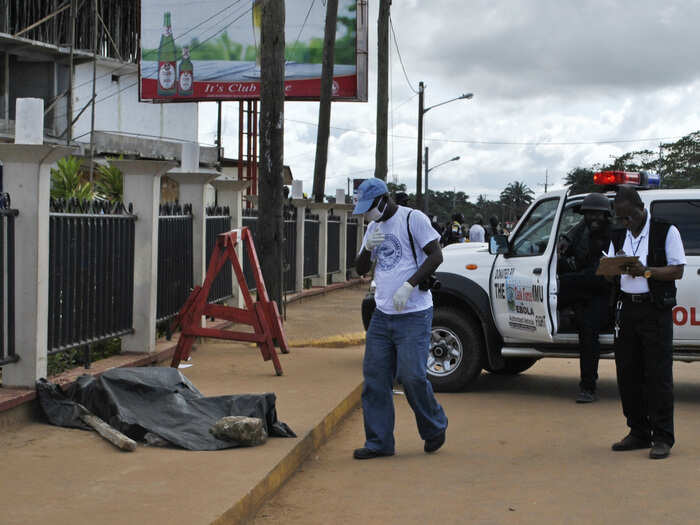
Citizens of the hardest-hit countries have been encouraged to contact authorities when someone dies from Ebola. Burial teams in protective suits, like this one, visit the homes of people suspected to have died of Ebola to collect the bodies.
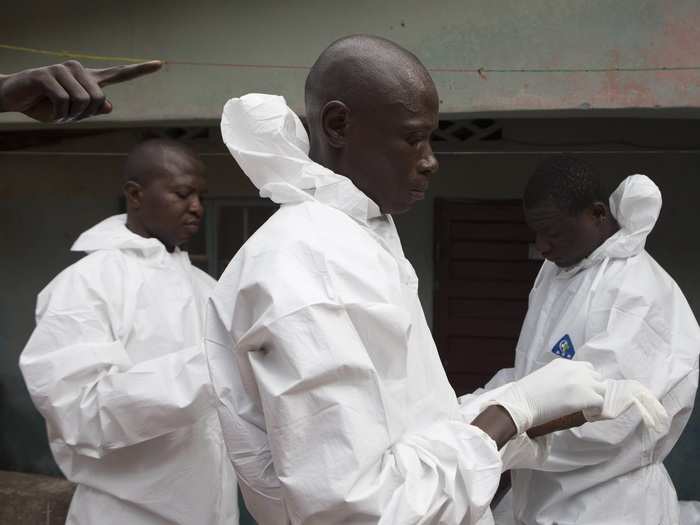
Relatives can catch Ebola during traditional burial practices that may involve washing or holding the body, so the work of these burial teams is crucial. They remove the bodies and prepare them for a safe burial.
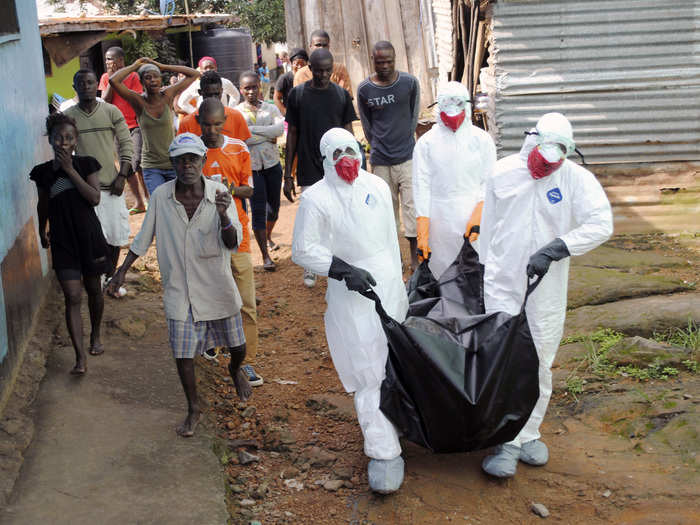
To intercept further spread, health workers wear protective gear and carefully disinfect the bodies they retrieve. They also routinely bury or burn any personal items, like clothing or blankets, that could be contaminated.
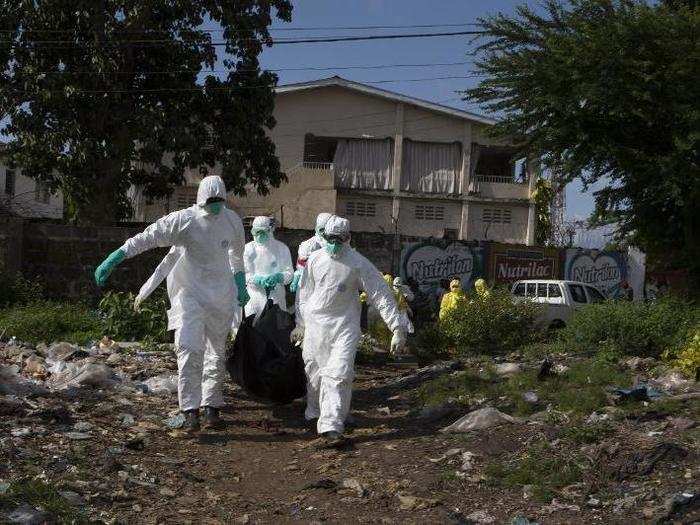
The workers remain in head-to-toe protective gear as they prepare to inter the bodies of victims.
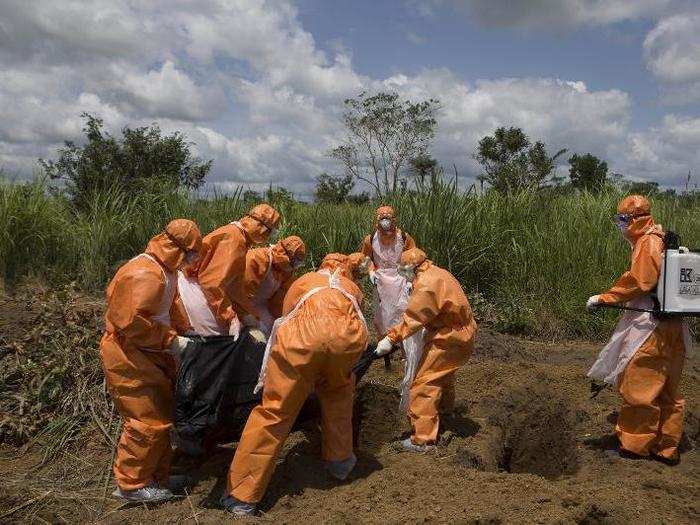
Sierra Leone recently reported 121 Ebola deaths in a single day, a new, grim record.
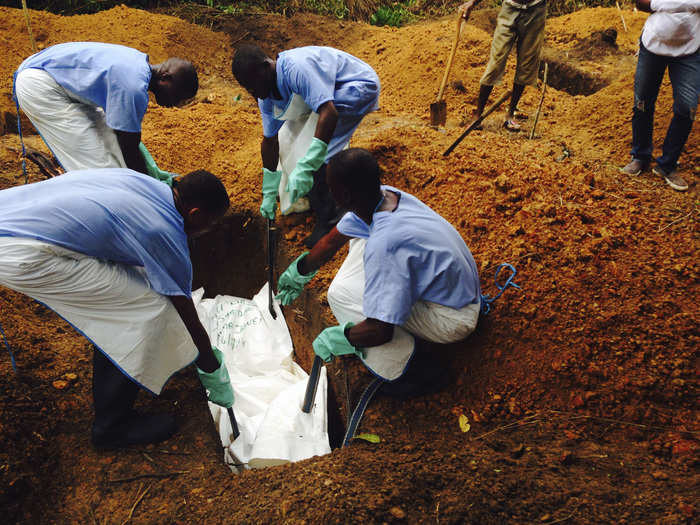
Source: Reuters
Meanwhile, health workers continue to tend to the sick, like this woman, from Monrovia, Liberia, who is suspected of having the virus. So far, the World Health Organization reports a case count of more than 7,000 for Guinea, Liberia, and Sierra Leone combined.
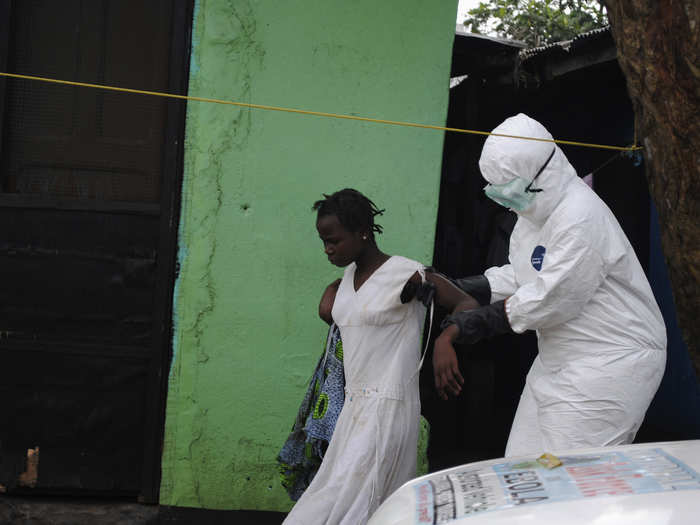
This pregnant woman, from Freetown, Sierra Leone, is also suspected of having Ebola. Here, health workers transfer her by stretcher into an ambulance. In the first known Ebola outbreak, in 1976, many victims were pregnant women.
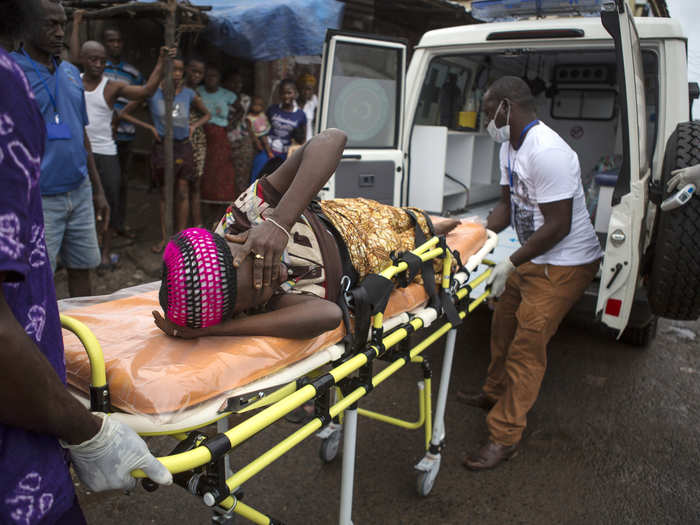
Source: Peter Piot
Suspected Ebola patients have blood samples taken and tested for the virus. Testing for Ebola only takes a few hours, but samples often need to be sent to a lab equipped to do this testing. The WHO is working to help local clinics scale up their ability to test onsite.
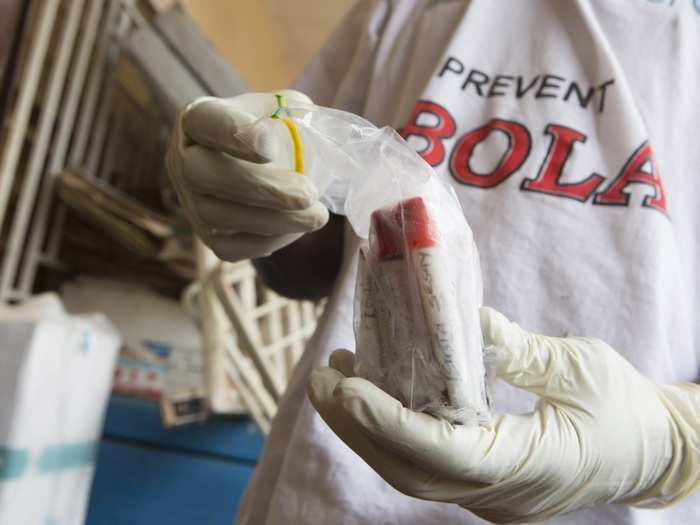
Source: Newsweek
Vigilance at the borders between countries is key to keeping the virus contained. Mali has not closed its borders, even though Guinea, where the current outbreak began, is right next door.
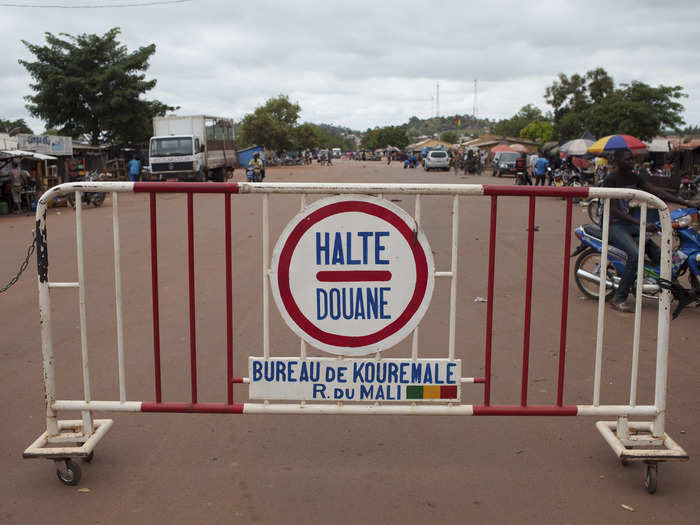
Source: Reuters
Instead, officials try to intercept potential cases. Health workers check the temperatures of people crossing the border from Guinea, one of the most afflicted countries, into Mali.
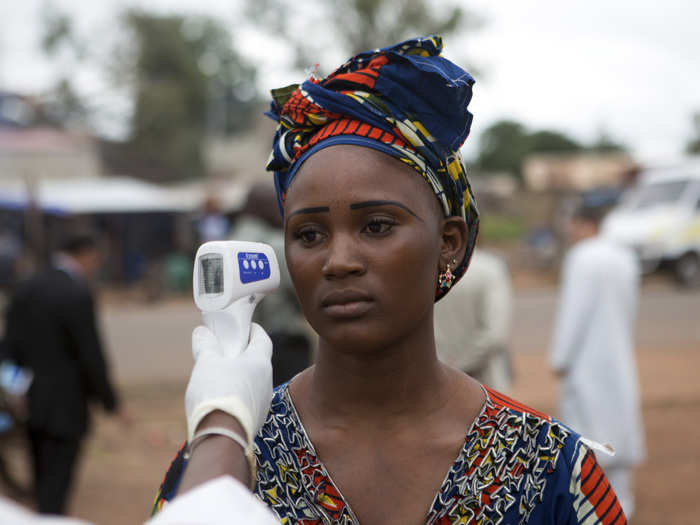
Even babies have to be screened.
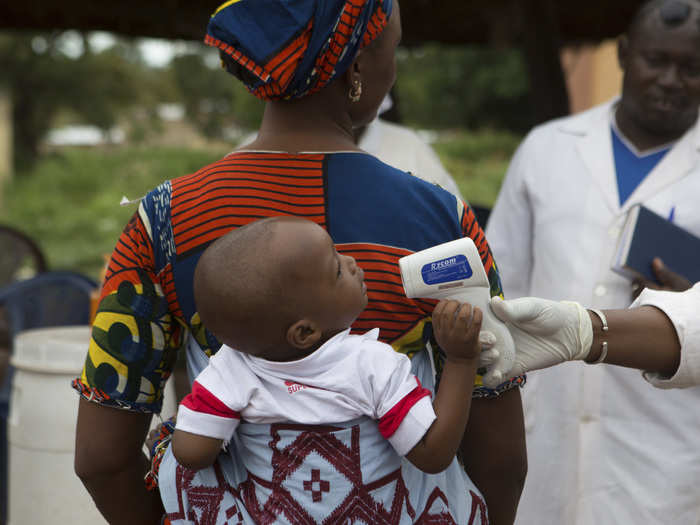
But the borders aren't the only place such monitoring occurs. Here, a school official takes a child's temperature as he prepares to enter his school in Lagos. Nigeria appears to have contained its Ebola outbreak after fears that it would spread rapidly in Africa's most populous city.
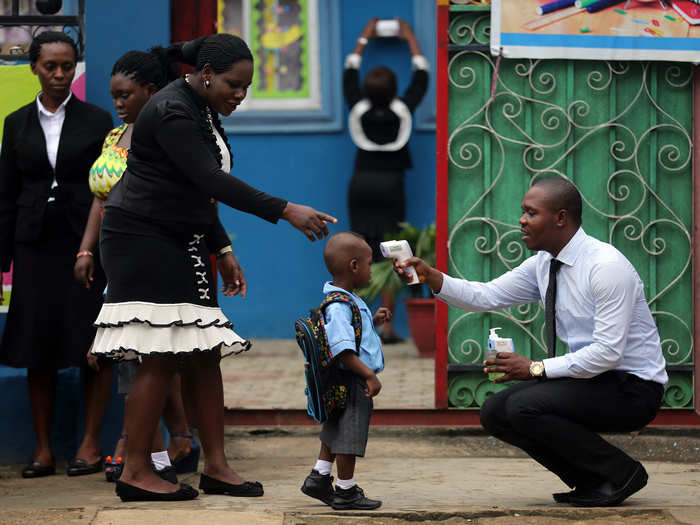
Schools are a prime place for public health campaigns. This actor plays the role of Ebola in a performance as part of a public awareness campaign at a school in Abidjan, Cote d'Ivoire.
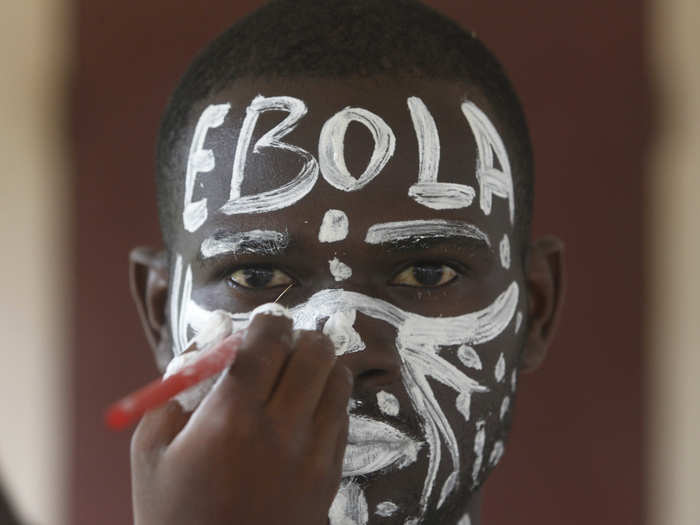
At the same school, another actor plays the role of a vaccine to stop Ebola. So far, there are no cases of Ebola in Cote d'Ivoire.
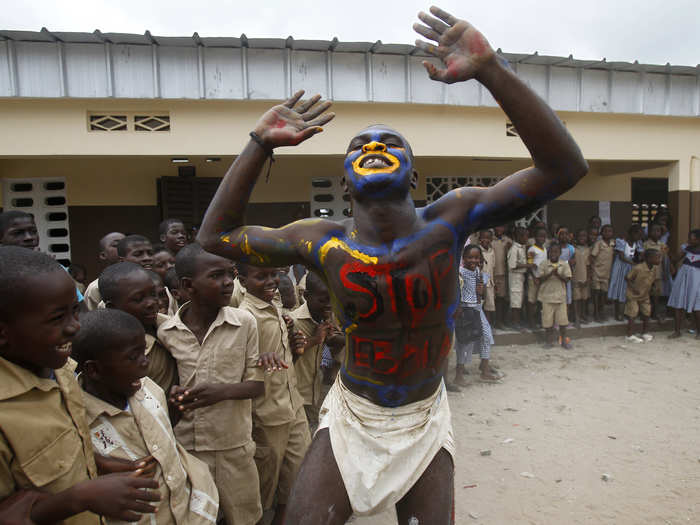
Making sure citizens know what to look for has been a key focus of local governments and NGOs. The disease often spreads when caretakers or people who have fallen ill don't recognize in time that they are dealing with Ebola. Here, a public mural demonstrates some of Ebola's major symptoms.
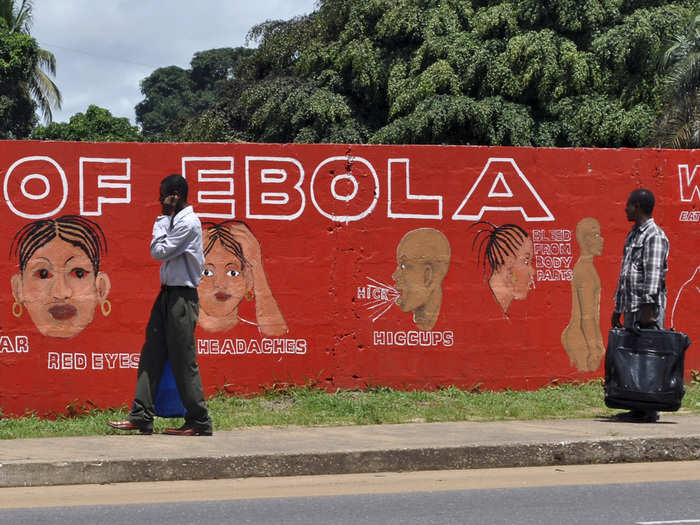
Governments are also learning from what went wrong in other countries. In this house in Senegal, 33 people were quarantined after officials learned that a member of the household had Ebola, and all of his contacts were monitored closely. No additional Ebola infections have since been reported there.
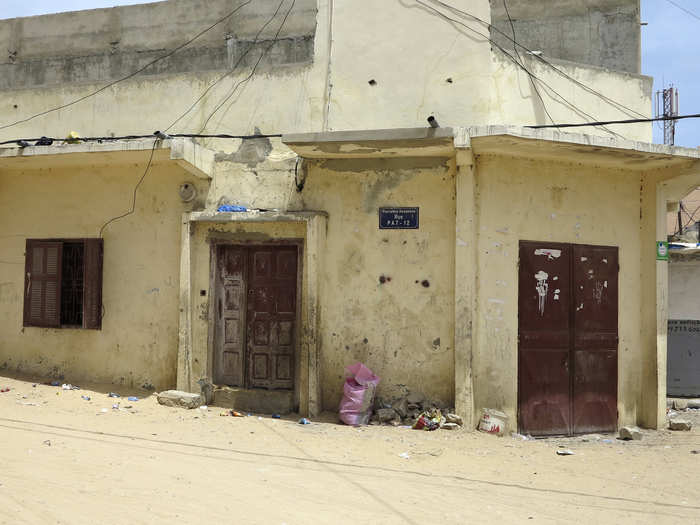
Source: Los Angeles Times
This quarantine was set up in West Point, a slum on the outskirts of Monrovia, Liberia, at the end of August. The practice of isolating whole communities en masse has been controversial among citizens and health officials alike.
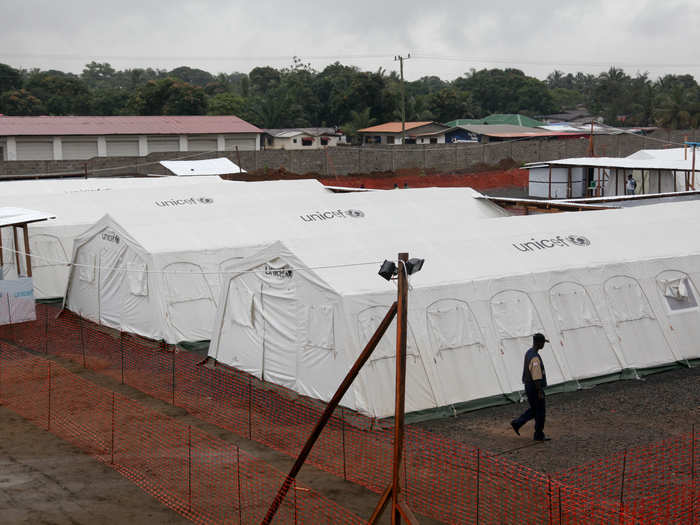
Many quarantined individuals were unable to pack adequate food and supplies before they were isolated. Here, relatives of the quarantined residents of West Point stand in line with food and other essential supplies for their relatives.
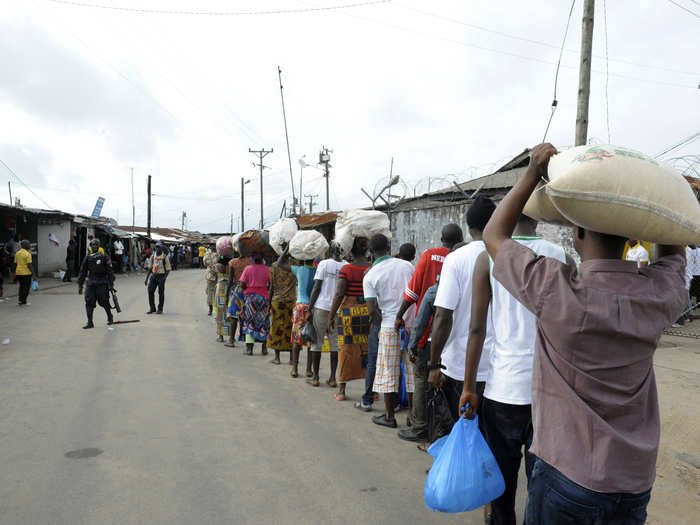
Security officers like this one were in charge of making sure no one entered or left the quarantined area. The West Point quarantine was hotly contested by local residents.
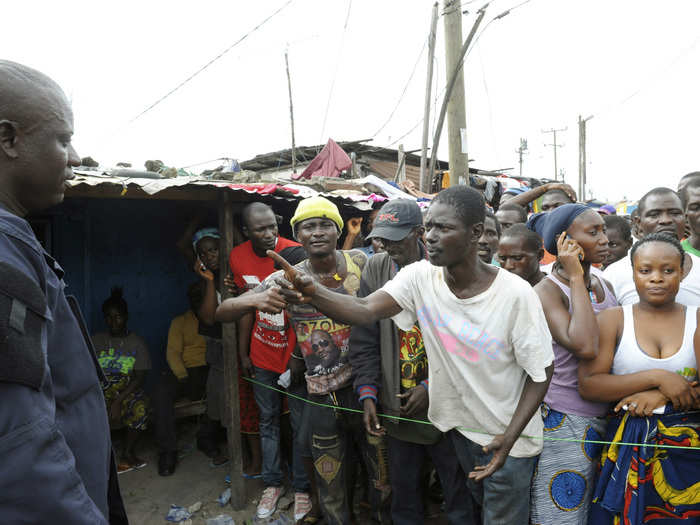
At the peak of the protests in August, police fired live rounds and tear gas on the protesters.
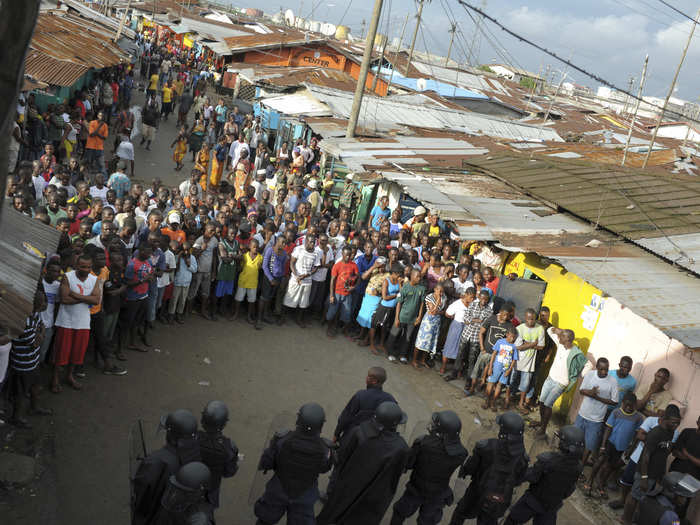
The West Point quarantine was lifted early last month, a move that was met by celebration from residents of the area. Health officials have maintained that the shift in policy does not mean Ebola has been eradicated from the area, but authorities feel they are able to screen for sick individuals without the isolation in effect.
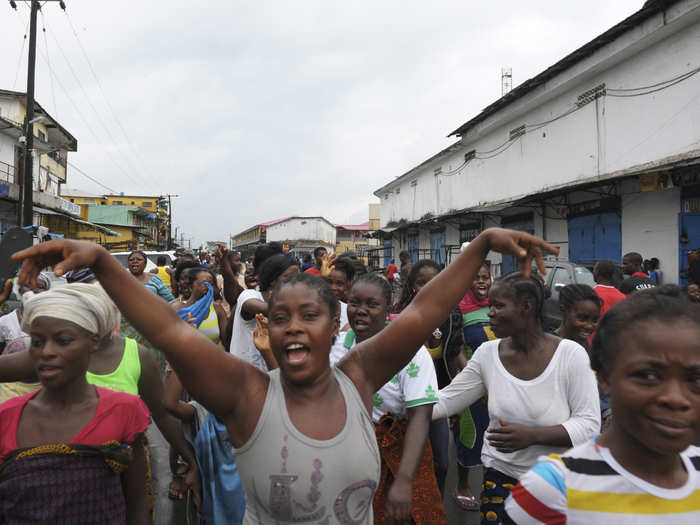
As the crisis continues, a shortage of health workers in the afflicted areas means volunteers are critical. Here, a volunteer health worker learns how to don a protective suit at a treatment center in Monrovia, Liberia.

Shortages in manpower and appropriate supplies, like clean needles and protective equipment, has contributed to the spread of the virus. Personal protective equipment helps ensure that more healthcare workers are not infected.

Constant vigilance is crucial to keeping the disease at bay. Here, a group of health care workers waits in line to have their temperatures taken before starting the day's work.
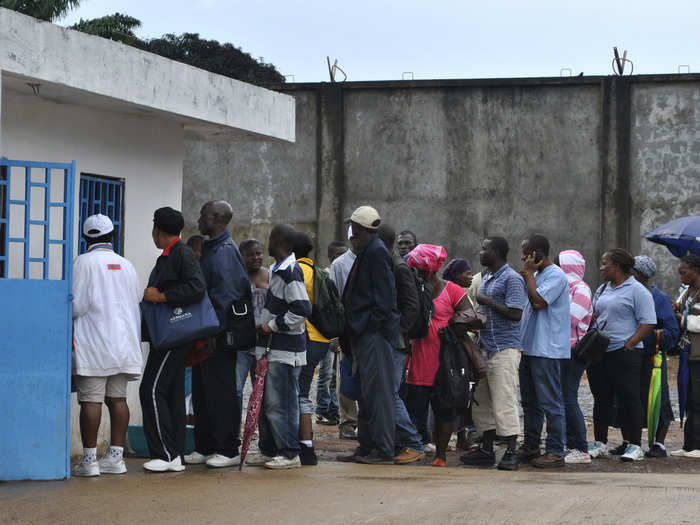
Healthcare workers arrived from other countries to help deal with the shortages in Liberia and Sierra Leone. Ugandan healthcare workers came to staff the Island Clinic in Monrovia, Liberia, which was completely full within 24 hours of opening. Here, Island Clinic healthcare workers carry buckets of disinfectant, critical to sterilizing hospital surfaces.

Source: WHO
The WHO has predicted that more than 20,000 people could be infected by this time next month — a grim prediction. For now, citizens and healthcare workers are trying desperately to contain the largest Ebola outbreak in history.
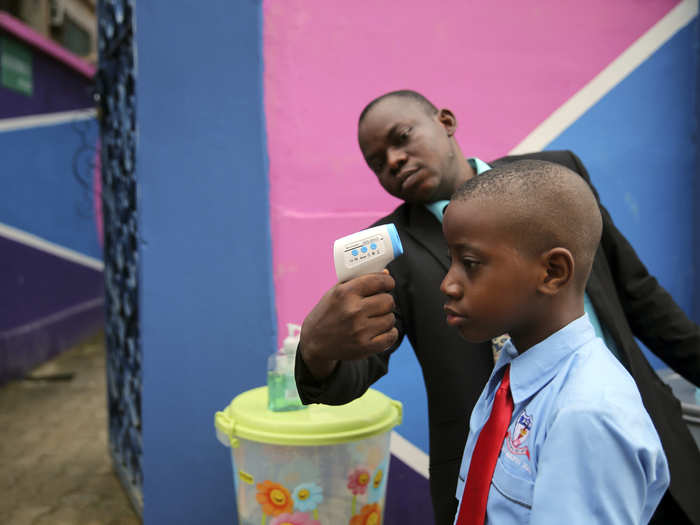
One of the first ebola outbreaks in history occurred in the Democratic Republic of the Congo (formerly Zaire) in 1976.
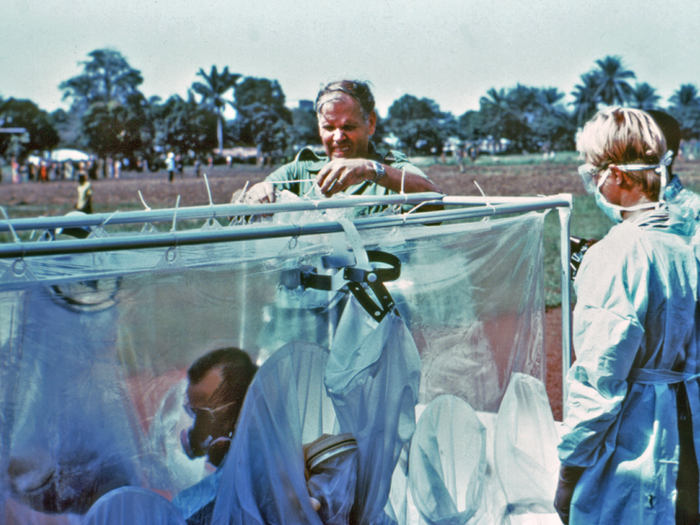
Popular Right Now
Popular Keywords
Advertisement